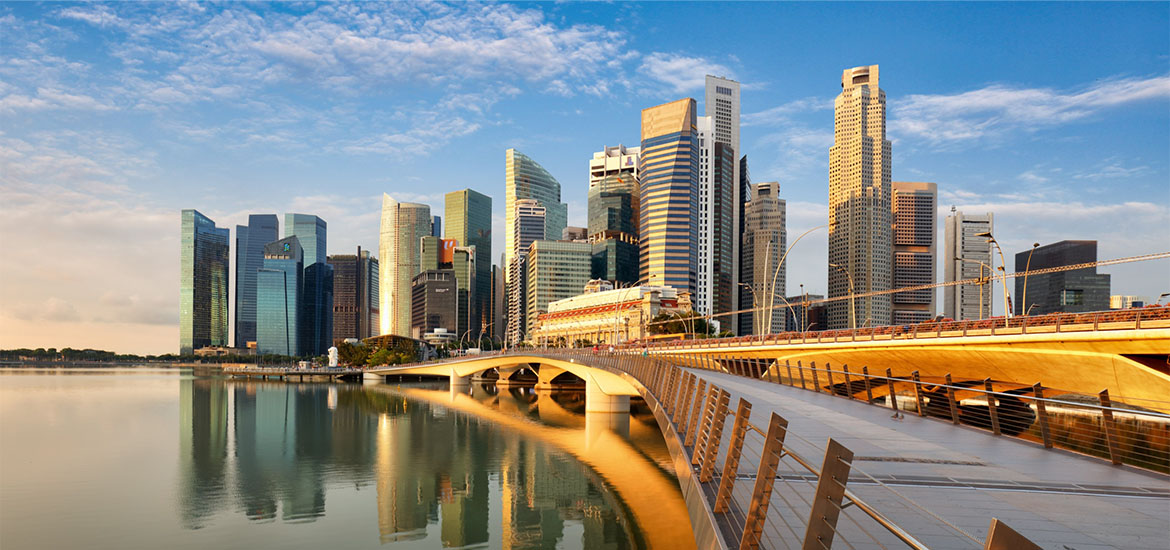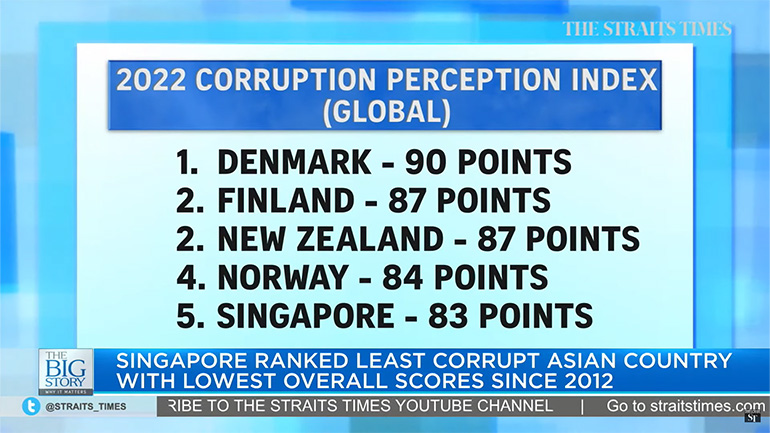Global anti-graft watchdog Transparency International has ranked Singapore as the least corrupt Asian country, with the Republic emerging fifth overall in the group’s Corruption Perceptions Index (CPI).
However, it achieved this with its lowest score in a decade, since the scoring metric was revamped by Transparency International in 2012 when Singapore scored a high of 87 points.
The CPI surveys experts and business people, and scores 180 countries and territories on a scale of 0 to 100 by their perceived levels of public sector corruption.
In the 2022 index, Singapore and Sweden scored 83 points. They were ranked behind Denmark (90), Finland (87), New Zealand (87) and Norway (84).
The Republic was ranked fourth in the 2021 index, having tied with Norway and Sweden at 85 points, behind Denmark, Finland and New Zealand which all scored 88 points.
In its report released on Tuesday, Transparency International said the 2022 CPI analyses the connection between conflict, security and corruption.
The report noted that the Covid-19 pandemic, climate crisis and growing security threats around the world are fuelling a new wave of uncertainty, with countries failing to address corruption worsening the effects.
The global average score for the 2022 CPI is 43, with two-thirds of the jurisdictions scoring below 50.
Ms Delia Ferreira Rubio, who is the Chair of Transparency International, said corruption has made the world a more dangerous place.
“As governments have collectively failed to make progress against it, they fuel the current rise in violence and conflict – and endanger people everywhere,” said the lawyer.
“The only way out is for states to do the hard work, rooting out corruption at all levels to ensure governments work for all people, not just an elite few.”
Singapore ranked second in the Asia-Pacific region, behind New Zealand (87).
It was trailed by Hong Kong (76), Australia (75) and Japan (73).
The report said the Asia-Pacific has stagnated for a fourth year in a row, with an average of 45 points.
It said that authoritarianism has been growing in the region, and added that restrictions on civic space and basic freedoms imposed during the pandemic have remained in place.
The report also noted that leaders in Asia have focused on economic recovery at the expense of other priorities.
Ms Ilham Mohamed, Transparency International’s Regional Adviser for Asia, said Singapore has scored consistently high in the rankings, remaining as one of the top countries globally and in Asia.
She praised Singapore’s Corrupt Practices Investigation Bureau (CPIB), calling it an excellent anti-corruption agency with international repute.








